Zhiming Su
DialBERT: A Hierarchical Pre-Trained Model for Conversation Disentanglement
Apr 08, 2020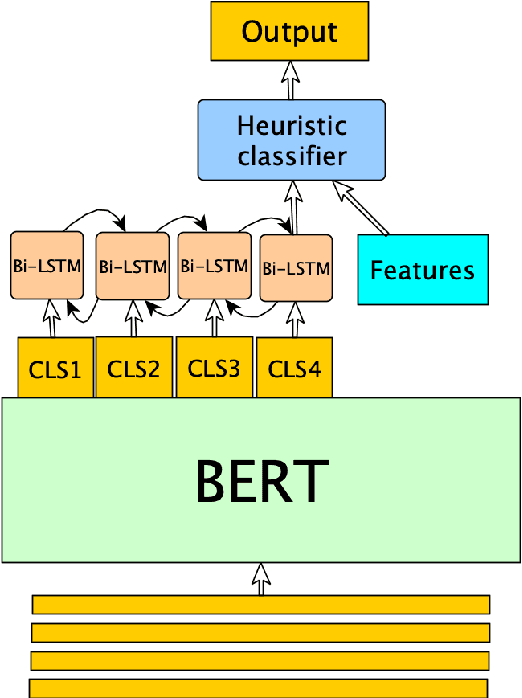
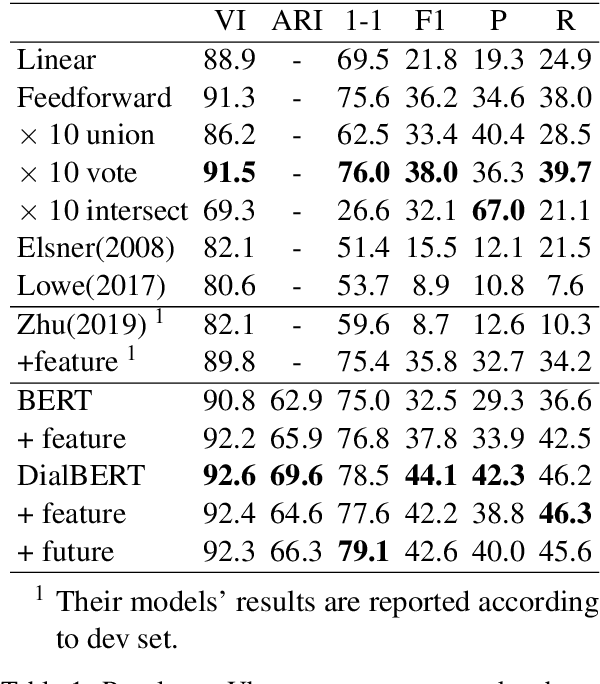

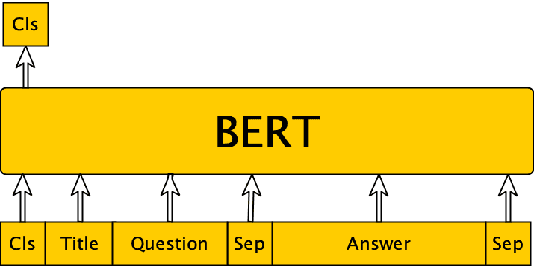
Abstract:Disentanglement is a problem in which multiple conversations occur in the same channel simultaneously, and the listener should decide which utterance is part of the conversation he will respond to. We propose a new model, named Dialogue BERT (DialBERT), which integrates local and global semantics in a single stream of messages to disentangle the conversations that mixed together. We employ BERT to capture the matching information in each utterance pair at the utterance-level, and use a BiLSTM to aggregate and incorporate the context-level information. With only a 3% increase in parameters, a 12% improvement has been attained in comparison to BERT, based on the F1-Score. The model achieves a state-of-the-art result on the a new dataset proposed by IBM and surpasses previous work by a substantial margin.
Speaker-Aware BERT for Multi-Turn Response Selection in Retrieval-Based Chatbots
Apr 07, 2020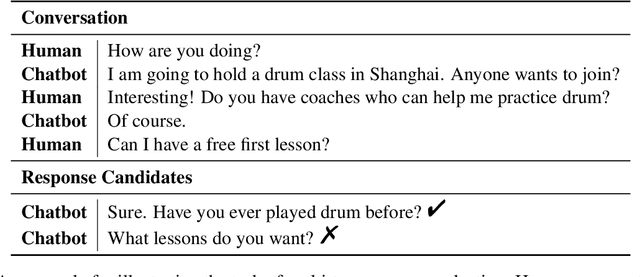


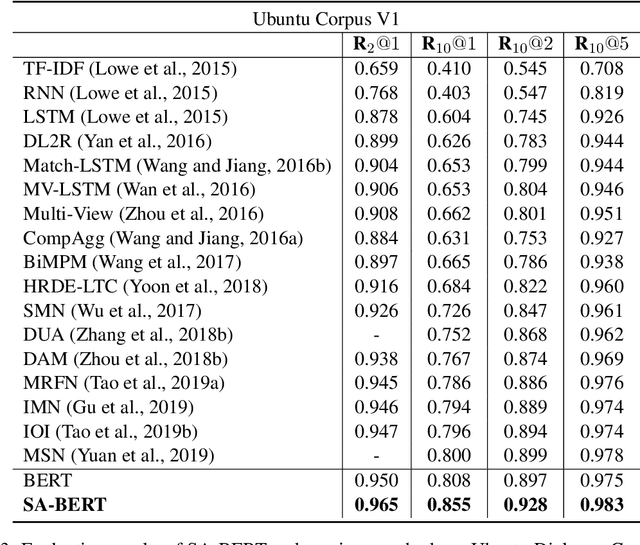
Abstract:In this paper, we study the problem of employing pre-trained language models for multi-turn response selection in retrieval-based chatbots. A new model, named Speaker-Aware BERT (SA-BERT), is proposed in order to make the model aware of the speaker change information, which is an important and intrinsic property of multi-turn dialogues. Furthermore, a speaker-aware disentanglement strategy is proposed to tackle the entangled dialogues. This strategy selects a small number of most important utterances as the filtered context according to the speakers' information in them. Finally, domain adaptation is performed in order to incorporate the in-domain knowledge into pre-trained language models. Experiments on five public datasets show that our proposed model outperforms the present models on all metrics by large margins and achieves new state-of-the-art performances for multi-turn response selection.
 Add to Chrome
Add to Chrome Add to Firefox
Add to Firefox Add to Edge
Add to Edge